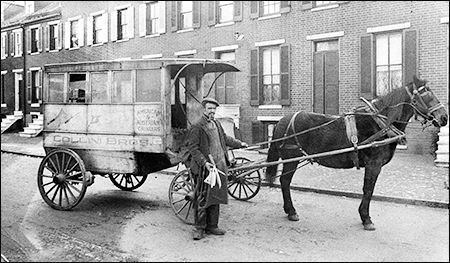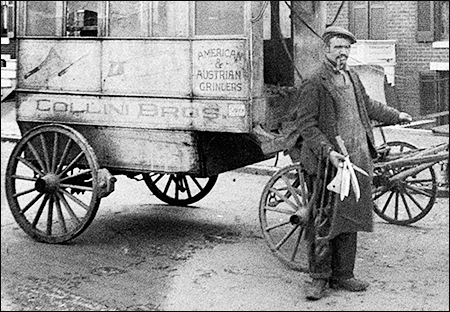We have romanticized knives, much like history. Most cowboys were freed slaves that came west to find work. Not gunfighters, outlaws, hired muscle etc. Cowboys. Most cowboys used a horse/rifle/saddle etc from the ranch they worked on, if they had their own pistol or rifle they were lucky, especially if it was a brand new Henry lever action or a brand new Colt Single Action Army. Many cowboys spent their money at the bars and brothels when they got their stock to the railways. Supposedly they kept their fixed blades, usually butcher knives like the mountain men used, in their bedrolls, and a clasp knife, or if they were lucky a big jack knife, in their pockets. Maybe that clasp knife was the tactical knife of the day, their go to EDC, easy to grasp with gloved hands.
But we romanticize the cowboy. Noble poet of the prairie. We romanticize that hard way of life.
My mothers father grew up in Baltimore, with family on the Maryland Eastern Shore. He was a Marine, and when he returned home after the war, he sold school buses. He was good friends with Robert Mitchum, after meeting him at a crowded diner on the Eastern Shore where both shared a booth (no special treatment for a movie star back then, you wanna eat, eat with him). Even though he didn't get to see my grandmother and mother all the time, he got to drive all over the Eastern Shore. In a full suit, all the time. I romanticized that, but it was probably a royal pain in the kiester for him.
My other grandfather, my fathers father, was a salesman. Insurance salesman for most of my fathers childhood, then a car salesman/gas station owner when my father was older, and finally a soda delivery man when I was very young, all over MD and southern PA. My grandfather got to drive all over. I went with him a few times. I've romanticized his travels. He was away from my father and uncles and aunt when he worked.
All of our forebears would have said we literally have no idea how good we have it, they would love to trade at the drop of a hat, and they would truly appreciate it I believe.
I was listening to a podcast this morning on my way in to work, by a comedian Joey Diaz. He said that people today are spoiled, most of them. I admit freely, I am spoiled. I grew up poor, right now I have a good job but I'm not raking in the dough, I spend my $ on frivolous things like these knives we enjoy. When I was a kid I had two choices at dinner time, take it or leave it. As I grew older, I realized that, if I was eating at home, I was eating what mom put on the table.
I really enjoy using these old knives. Not just the patterns, but actual old knives I've resurrected from the bottom of the junk peddlers table at the flea market or farmers market. I've brought back some great knives from the pit of repair despair. I wonder if their previous owners gave them a second glance. I used to think, how could these kids/grandkids of these previous knife owners toss such nice knives away, that a flea market dealer or a yard sale addict like me found them at a great price?
Maybe the previous owner just tossed them in a desk or bureau drawer and forgot about them.
I choose fantasy, like when I found that old Remington whittler, with worn down blades, and thought it was well used but well cared for. It felt good in my shirt pocket, and I act like a raccoon with a shiny bauble when I come across it in my collection.
My little brother appreciates a good knife, but is not the knife nut I am. He likes balisongs, that's about as much excitement for knives he exhibits. Oh yeah, I gave him a Gossman PSK for skinning/hunting, he loves that. But when my grandmother passed, she gave him my grandfathers old pocket knife. It was a Pepsi advertising knife, Colonial made I believe, my little brother still has it. It was given to him, he sold Pepsi products. Nothing fancy, just well used and one of many that my Jogie (Polish for grandfather, I couldn't for the life of me tell you the right spelling) carried.
Still cool to see though.
For years I didn't know that my grandmothers, great aunts, great grandmothers sharpened their kitchen knives on the front stoop in Baltimore, the coal hills of PA, the coal hills of NJ. Like others have stated, I don't think that they needed super sharp knives back in the day.
The samurai are an altogether different subject

...




